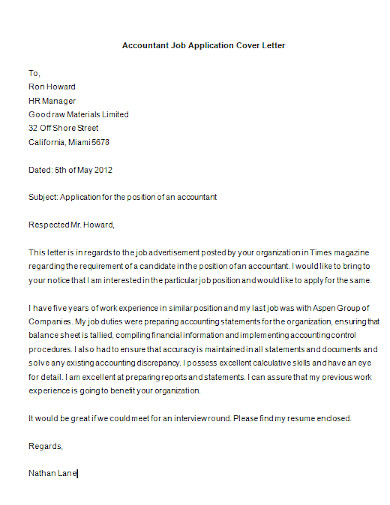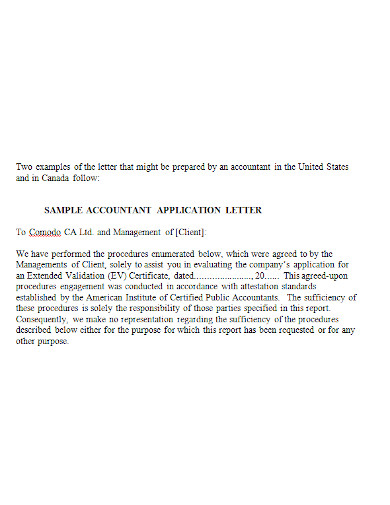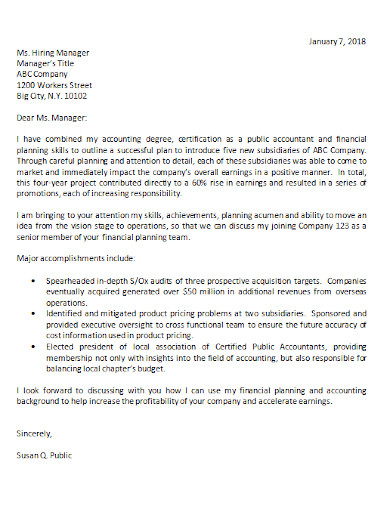6+ Job Application Letter For Accountant Examples to Download
Everyone is excited to look for jobs when they hit the required age. They want to gain as little as possible to satisfy their wants and needs. Applying for a part-time job or full-time job for the first time is not a bad idea. It’s most definitely a ladder to give you a taste of what life is like in real life. You don’t need to depend on your parents always. You will have your own families when the time comes. In line with this, you should be careful of the conditions when searching for work. Do you have an idea?
During the application process, an application letter is necessary. It outlines qualifications, skills, talents, and past employment in which this knowledge should be relevant to the work applied for. But it isn’t the end of the story. There are several aspects of it that you should be aware of. Have a look at the following for some inspiration.
6+ Job Application Letter Examples For Accountant
1. Job Application Letter For Accountant
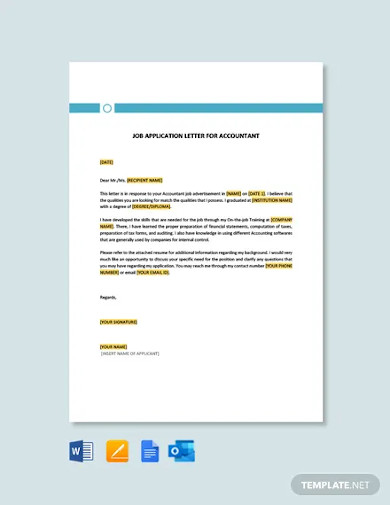
2. Junior Accountant Job Application Letter
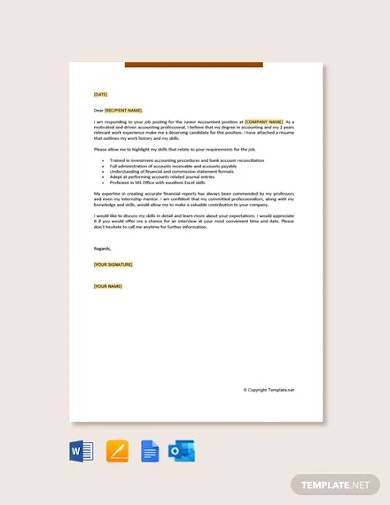
3. Accountant Assistant Job Application Letter
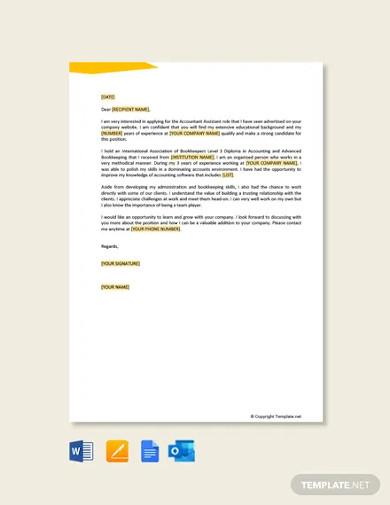
4. Job Application Letter For Accountant Post
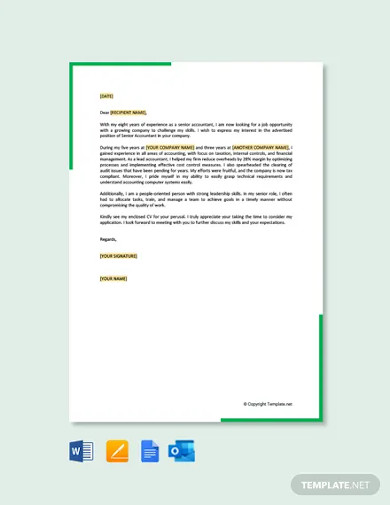
5. Sample Job Application Letter For Accountant
6. Accountant Job Application Letter Example
7. Printable Job Application Letter For Accountant
What Is a Job Application Letter?
An application letter is a one-page packet that you submit to a prospective employer to show your interest in a job opening. The job application letter describes who you are as a specialist and as an individual. The letter should highlight your accomplishments and skills, helping to capture the interest of the recruitment manager or recruiter in charge of reviewing applicants.
How to Create a Job Application Letter?
A job application letter is not the same as a short text to a friend or a thank-you message to a parent. Hiring managers and prospective interviewers have strict guidelines for document presentation and style, from length to font size and type to letter spacing.
When writing a job application letter, keep the following points in mind to ensure that you provide all of the details that a recruiting manager requires:
1. Highlight Your Skills and Abilities
An application letter is your chance to market yourself as the best choice for the job. That’s why you should include unique instances where you used your expertise, talents, and knowledge to support the organization. It is also beneficial to have evidence that backs up the statements.
2. Be Concise
While it can be tempting to provide a lot of comprehensive information about yourself, it is vital to be concise. If a recruiting manager receives a multi-page letter, he or she does not read it. A short job application letter is more manageable and enticing.
3. Proofread the Letter
Since this letter would serve as your first experience, you want to make it as meaningful as possible. To prevent a potentially unfavorable first impression, ensure that the letter is free of grammatical and spelling errors.
4. Check the Keywords in the Job Posting
Most job postings would specify which qualifications and abilities the recruiting manager and boss want candidates to have. Using these keywords in the application letter helps demonstrate to the reader that you will be a good choice for the particular job.
5. Send the Letter to Your Potential Employer
Unless a work opening expressly says not to submit an application letter, it is a good idea to send one for each job. This letter allows a prospective boss to understand more about you and to differentiate yourself from other candidates.
FAQs:
What’s a good application letter?
A strong application letter will be the difference between getting your dream work and seeing your resume buried in the slush pile and never seen again. A strong letter outlines your credentials, illustrates essential career accomplishments, and shows your familiarity with the business and the role you’re applying for in a company.
What’s the importance of a job application letter?
Employers obtain standard details from job application letters, which makes comparisons of candidates’ credentials easier. With this, you are likely gathering information about the applicant’s credentials that they wouldn’t include on a resume or cover letter.
Do you need a resume for your first job?
If the work is an internship, you won’t need a resume for a simple first part-time job. However, having a record on hand to promote your experience when you network with friends or making in-person prospecting visits with employers would be beneficial.
A work application letter is the first step in the job application process. As a result, it is a vital part of landing your dream career. Don’t worry. We got you covered. Take cues from the above job application templates and guidelines.



